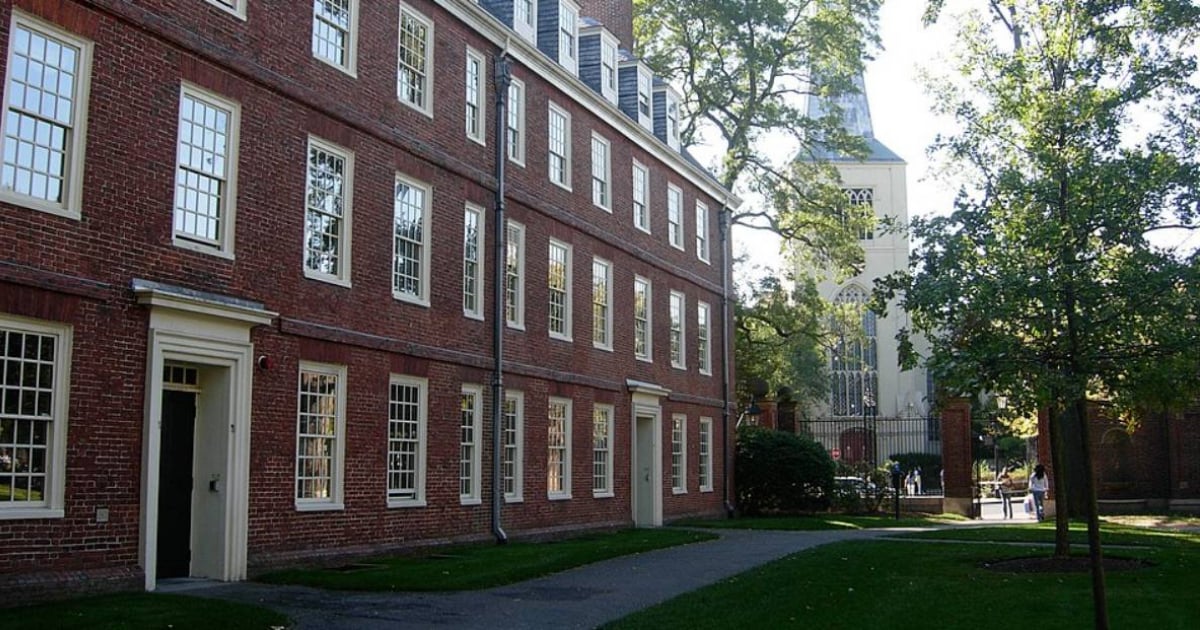
Related videos:
The Harvard University, one of the most prestigious academic institutions in the world, has taken a significant step towards inclusion and educational access for students from low-income backgrounds in the United States.
Starting from the 2025-2026 academic year, the university will offer free tuition for students whose households have annual incomes equal to or less than 200,000 dollars.
The measure not only includes the waiver of tuition, but goes further for those with annual incomes of $100,000 or less. These students will also receive full coverage for food expenses, housing, health insurance, and travel costs.
"Making Harvard financially accessible to more people expands the range of backgrounds, experiences, and perspectives that all our students encounter, fostering their intellectual and personal growth," stated Alan M. Garber, president of Harvard University.
The institution will also offer an initial scholarship of $2,000 in the first year of study and another scholarship of $2,000 in the penultimate year for students from households with annual incomes of up to $100,000.
These grants aim to support the academic and professional transition of young people beyond their time at university. The expansion of these grants will allow approximately 86% of American families to benefit from some form of financial assistance from Harvard College.
Since the launch of its Financial Aid Initiative in 2004, Harvard has raised income thresholds four times to ensure more equitable access. Currently, 55% of students receive some form of financial aid, and their families pay an average of $15,700 per academic year.
William R. Fitzsimmons, Dean of Admissions and Financial Aid at Harvard, highlighted that "the most talented students come from diverse socioeconomic and cultural backgrounds. Our financial aid policy is key to ensuring these young people see Harvard as an accessible and enriching space."
This decision by Harvard adds to the trend of other renowned universities in the United States, such as the Massachusetts Institute of Technology (MIT) and the University of Texas System, which have implemented similar measures to facilitate access to higher education for middle- and low-income families.
The news has been well received by students and families who see an opportunity to access quality education without the economic barriers that previously made it unattainable.
Frequently Asked Questions about Free Tuition at Harvard University
Who will benefit from free tuition at Harvard?
Free tuition at Harvard will benefit students whose households have annual incomes equal to or less than $200,000. Additionally, for those with incomes of $100,000 or less, the costs of food, housing, health insurance, and travel expenses will also be covered.
What other assistance will Harvard offer to low-income students?
In addition to free tuition, Harvard will offer an initial scholarship of $2,000 in the first year and another in the penultimate year of studies for students from households with an annual income of up to $100,000. These scholarships aim to ease the academic and professional transition for young people.
Why is Harvard implementing this financial aid policy?
Harvard is implementing this policy to widen access to higher education and promote diversity of backgrounds, experiences, and perspectives among its students. The university aims to be an accessible and enriching space for talented young people from diverse socioeconomic and cultural backgrounds.
How does this measure from Harvard compare to other universities in the U.S.?
This measure from Harvard adds to a trend at other prestigious universities in the United States, such as MIT and the University of Texas System, which have also implemented policies to facilitate access to higher education for middle- and low-income families. These initiatives aim to reduce the economic barriers to accessing a quality education.
Filed under: